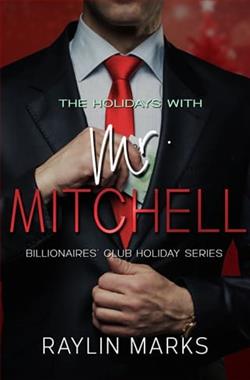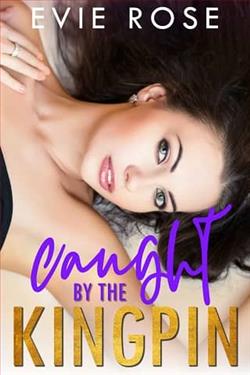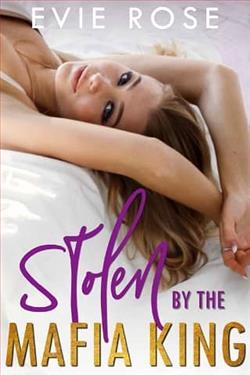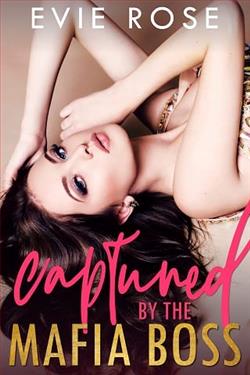Page 44 of Witches of Honeysuckle House
She flipped it over, but before she could make it out, the lamp turned off.
“You can’t stop me from seeing it.”
She reached over and pulled the chain on the lamp, but it didn’t react. With an annoyed sigh, she slipped out from under the quilt, several cards falling from the bed and landing on her rug, their shadows just visible in the moon and candlelight. She crossed the room to where her candle burned. The curtains stirred, as if to put out theflame, but Regina snatched the candle holder away from them before they could. She lifted first the candle, then the card. The warm yellow light cast the depiction of Honeysuckle House in a soft glow. At first, Regina smiled, seeing her front porch so lovingly detailed, but the longer she examined the artwork, the more her unease grew, until it threatened to choke her, much like the vines climbing the columns on the card—each one studded with thorns. Seven of them. A warning of deceit. A call to be cunning.
Her mind skipped to Tillie, this invader in her home. Tillie, whose father had been trying to buy her family’s shop the day of the accident, who had been upset when the Caldwells wouldn’t budge. Tillie, whose family now owned the very storefront Christopher Caldwell had refused to sell.
Regina tapped a finger against the card, unsure what to make of it, why the house didn’t want her to see it. But she knew one person who could help her sort it out. She set the candle back on the windowsill, slid her feet into her slippers, and hurried toward her sister’s room.
Chapter Twenty-Three
Violet, 1960
Violet stared after Regina as she left the sitting room, tarot cards in hand, worried how she might interpret the three of swords. She should’ve told her about Tillie that afternoon, should’ve explained when Regina put up a fight about the plants, should’ve confessed the truth the moment she’d pulled the lovers card. But Regina had a look in her eyes that gave Violet pause. Regina had never given Violet any reason not to trust her, but this felt different. For so long, they’d had no one but each other. Violet had never brought home anyone aside from Tillie, and she still remembered that first time almost seven years ago.
They’d finished up their late lunch at Barb’s. At some point what had started as a way to pass the time on particularly slow afternoons at the shop had become a tradition. Each time, Violet found herself wishing she could reach across the table between them and take Tillie’s hand—ask if their years of companionship and their conversations about music and literature and life meant as much to her as they did to Violet. More than once she entertained the idea of lighting a blue candle to draw the truth out of the other woman, but Violet feared what the truth might hold. That what they shared was no more than a common friendship between young women.
As Violet took the last sip of her milkshake, Tillie pulled a faded book out of her handbag. She set it on the table between them, the spine facing Violet so she could see the title—Orlandoby Virginia Woolf. They’d discussed Woolf before, usually sticking to her safer works, always carefully skipping over this particular novel, which in itself had been an awakening to Violet the first time she’d read it. Her eyes flitted up to Tillie’s, searching them for meaning she wanted desperately to find.
“You’ve read it?” Tillie asked, a slight tremor in her voice.
“It’s a favorite,” Violet whispered, praying for Tillie to understand her meaning.
Tillie’s lips curved up. She flipped the book open to the very back, where a flower sat pressed between the pages. A violet.
“I picked this back in the spring,” Tillie said, voice low. “It reminded me of you.”
Violet took in the delicately pressed flower, the curve of the still-green stem and leaves, soft and full as they led up to deep purple petals parted like lips whispering secrets. Where two of those petals met, were Violet to lift them gently, carefully, she would find the bright yellow stamen perfectly preserved beneath, an invitation to the promise of sweet nectar.
“It’s beautiful.” Violet breathed the words more than she spoke them.
She reached across the space between them, setting her hand on the book. Tillie, too, reached for the novel. The tips of their fingers met, and heat shot up Violet’s arm all the way to her heart, where it settled in, warming her chest and her stomach and licking its way up her throat. Her cheeks flushed, and when her eyes flitted up to Tillie’s, she found her own desire mirrored there.
“Do you—” Violet started.
“Maybe we could—” Tillie said at the same time.
They both laughed, but neither moved their hands from the book.
“Would you like to come over for …” Violet paused. “A drink?”
Tillie’s scarlet lips parted, and Violet couldn’t tear her eyes from them.
“A drink would be nice,” Tillie said, a little breathless. “I can bring a few records. And we can …” she trailed off. “Listen to them together.”
That night had been the first time they’d danced—the first time they’d kissed—but it hadn’t been the last. Now, Tillie was here, in Violet’s home with her records and her plants and her clothes and they were finally, finally building a life together.
Once Regina was gone, Tillie jumped up from the chair and took the spot next to Violet. She reached for Violet’s hand and held it gently in hers.
“Do you need to go after her?” Tillie asked.
But Violet shook her head. Since their parents’ deaths, Violet had always put Regina first. It was time to live her life for herself.
“It can wait for morning. What do you say we hang up those philodendrons in the bedroom?” Her lips quirked up.
Tillie’s flush was all the answer Violet needed.
When they made it up to Violet’s room, the house had already pulled Tillie’s portable record player from her boxes, and Billie Holliday’s voice sang softly through the door.















